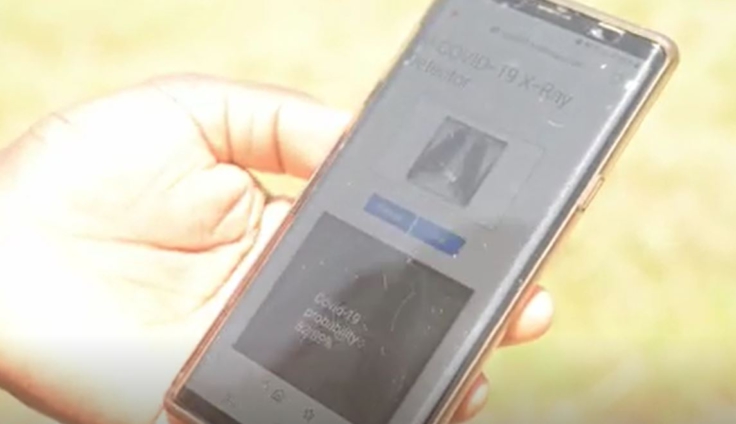Pneumonia as a result of COVID-19 occurs when parts of the lung fuse and collapse.
The virus damages the surface area in the organ where oxygen transfer usually takes place.
When the surface area shrinks, breathing then becomes difficult, and the damage to the lungs can only be detected with an X-ray or CT scan.
Fortunately, an artificial intelligence developed by a Ghanaian scientist is able to analyze chest X-ray or CT scan images to determine lung abnormalities.
On Tech Thursday, Luv FM’s Kwasi Debrah speaks with Dr Mark Amo-Boateng of the University of Energy and Natural Resources.
DISCLAIMER: The Views, Comments, Opinions, Contributions and Statements made by Readers and Contributors on this platform do not necessarily represent the views or policy of Multimedia Group Limited.
Latest Stories
-
Kinka Blonya: How Ga Mantse brought Joy, Hope, and a Promise of a Brighter Future
5 minutes -
2024 Election: We lost due to internal party conflict – NAPO
16 minutes -
Mahama, Ablakwa, Brian Amoateng among 100 Most Reputable Africans
38 minutes -
‘Mugabe’ of Parliament: Collins Dauda begins 8th term
41 minutes -
Director General of NCA, Joe Anokye, proceeds on terminal leave
48 minutes -
‘Back Again’ – Akufo-Addo to Omane Boamah during Jubilee House tour
56 minutes -
Processes for National Honours must include the public – Esther Ofei-Aboagye
1 hour -
Naelp hands over 954 hectares of reclaimed lands to mining communities
1 hour -
100 Most Reputable Africans: John Mahama, Samuel Okudjeto Ablakwa, Rosa Duncan-Williams make 2025 list
2 hours -
How 2 Mandela Fellows are fighting period poverty
2 hours -
Parliament swears in three disputed NPP MPs despite court case by NDC
2 hours -
Inauguration of the 9th parliament and election of speaker (photos)
2 hours -
All set for John & Jane’s historic Swearing-in
2 hours -
Powerful Tibet earthquake, near Nepal, kills at least 53
3 hours -
Over 2,000 refugees, migrants die reaching Europe in 2024, says UN
3 hours

